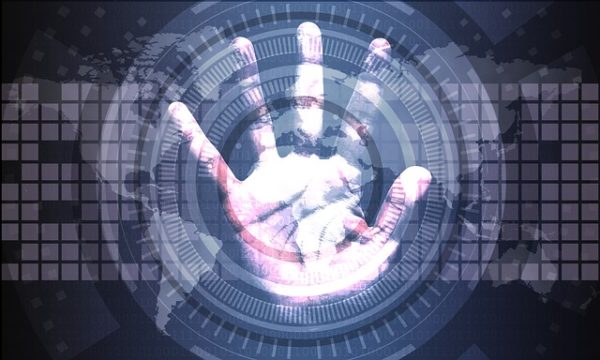As the world becomes increasingly more online orientated, particularly in the day and age, where there are more and more people working from home, then cybersecurity becomes of increasing importance. Every user of a computer should have some awareness of cybersecurity and know the basics. Still, when you are putting together an application, a system, a network, or a company, then you need more and more security specialists.
As networks get more and more complex, the need for more cybersecurity jobs within organizations is required. So if you have an interest in a career in this area, which specialization should you look at?

Take a look at some of the most common roles in cybersecurity and what qualifications and experience you need to apply for these jobs.
Security Specialist
This is an entry-level position but can also be a progression from Network Administrator or Systems Administrator. A security specialist will be responsible for keeping up to date with security improvements and patches that are released for all the software that an organization uses.
You will need to be aware of what is fixed in each patch and be able to give a priority for those patches being implemented on your system. You will need to ensure that you have the right security tools in place in your organization. This includes using products such as firewalls and anti-virus to ensure that your systems or protected and that users don’t circumvent them.
You will also monitor the work of all system administrators to ensure that there are no unauthorized changes taking place. You will also have to ensure that training is undertaken by all staff that require it and that particularly those with increased security access know what the consequences of changes are.
This will include knowing how firewalls, proxy servers, and load balancers work. You will need to be familiar with a variety of different system types, including Windows, Unix, Linux, and Macs. Having some programming skills will significantly help with your role with languages like C#, Java, and PHP.
Qualifications required
To work in this area, you will usually need a degree in computer sciences, and some employers prefer a masters in cybersecurity alongside some relevant experience.
Incident Responder
Think of this role as the police force or firefighters of the cybersecurity world. When there is an incident, they are called into action. Their work starts by developing the procedures that will be used whenever there is a security incident. These are procedures for themselves and everyone else in the organization.
These can be simple things from when a user leaves the organization who had superuser access, through to hackers taking over your website and servers, through to a physical break-in and hardware being stolen in the office. Their responsibility will be two-fold. Firstly, to secure any evidence of what has happened that might enable the authorities to trace the perpetrator of any crime that has been committed.
Then secondly to right the wrongs of what has happened during the incident. This might mean taking the company offline for a period so that data can be restored from a backup, through to coordinating with other organizations and the authorities to ensure that everything is as it should be.
This is a particularly crucial role in the day and age of GDPR, which could mean that organizations can be fined millions if there is a breach of user data. To work in this field, you will need a basic understanding of a variety of computer systems. You will want to know about backing up and restoring methodologies.
You will also want to gain skills in some specific forensic technologies such as EnCase, Helix, XRY, and FTK. Finally, it helps if you have a logical brain, don’t get panicked quickly in a stressful situation and can think outside of the box.
Qualifications required
This type of role generally requires degree level education and experience in the sector. A masters in cybersecurity may also be a prerequisite.
Penetration Tester
A penetration tester is a job that requires a high degree of specialized knowledge and is not a career for the faint of heart. The job is essentially that of an ethical hacker. You will be hired by organizations that want to test their security. It will be your job to try and access their systems by any means necessary. This can mean using the same techniques that the ‘bad guys’ would use to access systems. This can be either through remote access exploits, social engineering, or using vulnerabilities. The idea behind the role is that you will be hired to test a system.
At the end of the testing, you will need to write up a report that details all of the different security holes that you found and how you were able to take advantage of them. This career requires the dual knowledge of how to write code and programming to exploit systems as well as being able to write up reports for people who might be less technically minded than yourselves in such a way as they can take action to correct the problem. It can be everything from Carol in finance leaving her password on a post-it note that is visible through the windowto not updating to the latest update of Windows. These incidences can lead to hackers gaining access to your system.
Not only will you need to have these skills, but also you will need to continually be learning about new techniques and new exploits as they come so that you can test for them and report on them. Due to the high levels of skills that are required for such a role, then the salary for these services is normally excellent.
Qualifications required
You will typically need a degree in computer sciences or similar and have extensive experience in the field. Improving your skills with a masters in cybersecurity is also beneficial. This career is often a stepping stone from Systems and Network Administration or similar roles.
Source Code Auditor
This is a job that requires a person who has meticulous attention to detail. The role of a source code auditor is used in a software development company. They are the ones responsible for looking through every piece of code that is produced by the organization to ensure that there are no weaknesses or exploits that can be used by hackers to take advantage of your software.
If your software is used online and/or allows payments to be taken, then any exploits in the code could allow unscrupulous persons to take money from you or exploit your software to get free products. There are many ways this can be done, and so a broad range of skills and understanding is required for the source code auditor. This could include knowing not only the programming languages being used but also things like databases and web interfaces so that as information is passed between different systems, then it can’t be abused.
You will need to be highly analytical, can continuously learn, and be able to work consistently and logically, especially as you will be working on your own most of the time.
Qualifications required
This is a role that requires a great deal of education, such as holding a masters in cybersecurity, and practitioners are normally qualified to post-graduate level in a computer science discipline. Plus, extensive experience in a similar cybersecurity environment.
Cryptographer
Cryptographers are specialized types of programmers who deal with codes in code. What that means is they ensure that any code you write is secure and that specific information such as passwords and security credentials are stored in a format that is unreadable by users or hackers looking to access the system. They are people who encrypt the code that you have written so that it either cannot be changed or can’t be changed without it being detected.
This is particularly important when any form of payment is being taken. They will want to ensure that credit card information is protected when it is being transmitted to an authorizing program so that it can’t be changed altered or intercepted. Cryptographers need to have a very high levelof programming skills in languages such as C, C#, C++, Java, PHP, and possibly many other languages.
Cryptographers typically have a strong background in mathematics, as well as the use of codes related to some high-level mathematical functions. This role requires a very logical mindset, and superb attention to detail to ensure that patterns and bugs can be found easily. You will use techniques such as encryption and hashing to ensure that hackers cannot access your code and make changes.
Qualifications required
You will have plenty of experience in a cybersecurity setting and hold degree-level qualifications such as a bachelor’s or masters in cybersecurity.
Forensic Expert
This is someone who will be an expert at examining computer files and systems looking for information that will help law enforcement in pursuing criminal charges against individuals. This can involve making copies of systems so that data can be examined. Searching for hidden information and deleted files as well as searching for information that may be encrypted or secured behind passwords and other protections.
They will also need to be able to identify illegal information stored on systems such as illicit materials. Not only will they have to identify the content, but they will also need to be able to prove how it made its way onto the system and when these things happened. This requires extensive attention to detail and involves working closely with law enforcement officials.
This means that an individual that wants to get into computer forensics will need to be security-minded, security cleared, and have an awareness of computer law and criminal procedures as well as the technical skills provided by a masters in cybersecurity to back this all up. They might also be required to testify in court and, therefore, will need to be presentable and able to detail complex technical subjects to a non-technical audience.
Qualifications needed
A degree level qualification such as a bachelor’s or masters in cybersecurity is required. You will also have excellent analytical and problems solving skills.
Other Careers
These are just a small selection roles that you can on to gain if you have an interest in cybersecurity, and you will notice that many of them suggest having a masters in cybersecurity roles. There is still a range of other options that are available to a person that wants to work in the field that don’t necessarily require a masters in cybersecurity, so it might be worth exploring those too. However, your career prospects would be improved by taking one of those courses.
Some of the functions within smaller organizations might cross over a number of these roles and include things such as security manager, network security management, or information systems manager.
Possibly the most senior level job that comes within the field of cybersecurity is that of Chief Information Security Officer. This is normally a board-level position that covers the whole range of different IT security responsibilities and, as such, will generally be someone who has worked at a lower level and progressed with education such as masters in cybersecurity and relevant training. They will make the ultimate decisions about what technologies to use, who to hire, and what policies need to be in place to ensure the security of all of a company’s systems.
This will include not only products produced by the company but also touchpoints, like customer information databases, supplier information databases. They may well also have a hand in disaster recovery and business continuation in the event of problems occurring for the business, such as not being able to physically access the servers any longer.
Which career is right for you?
There is a wide variety of different security roles that you can get involved in as an IT specialist, and more and more are invented as time goes on. So, if you are looking to transition into this career, then there are a lot of choices for you. What is certain is that you will need to learn a lot about IT systems and programming languages as you can to be able to cover all the bases. It is also beneficial to look at training programs and specialized higher education courses such as a masters in cybersecurity.
So, start by learning a coding language or two and then expanding to cover more systems as time goes on. Be prepared to read up about any security breaches that have occurred and learn how they work and what needs to be done to prevent them. You will always have something new to learn in IT security, and you want to be one step ahead because you can bet that as much as you learn, the bad guys are also learning. The reward for all this hard work is a great pay packet and satisfaction of making the world a safer place.
 Gearfuse Technology, Science, Culture & More
Gearfuse Technology, Science, Culture & More


